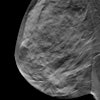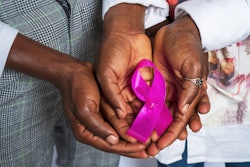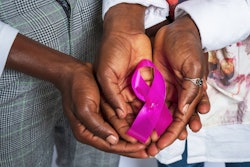
Black women may need to start breast cancer screening earlier than women of other racial and ethnic backgrounds, according to findings published April 19 in JAMA Network Open.
A team led by senior author Dr. Mahdi Fallah from the German Cancer Research Center in Heidelberg, Germany, found that while breast cancer screening is often recommended to start at age 50 for the general female population, Black women should start screening eight years earlier, at age 42.
"Clinicians and radiologists should consider race and ethnicity when determining the age at which breast cancer screening should begin," Fallah told AuntMinnie.com.
Disparities exist in breast cancer mortality by race, with previous research suggesting early-onset breast cancer is more prevalent among Black women. Some guidelines recommend starting breast cancer screening at 50, but this may not be generalizable for all women, the authors noted.
The investigators sought to evaluate race- and ethnicity-adapted breast cancer screening starting ages based on current breast cancer mortality data. They followed the U.S. Preventive Services Task Force (USPSTF)'s most current breast cancer screening guidance, which recommends biennial screening mammography for women ages 50 to 74.
The researchers measured risk-adapted starting age of screening by race and ethnicity based on 10-year cumulative risk of breast cancer-specific death, and they calculated age-specific 10-year cumulative risk based on age group-specific mortality data without modeling or adjustment.
The study included breast cancer-specific death data from 415,277 women. Of these, 74.6% were white, 15.1% were Black, 6.9% were Hispanic, 2.9% were Asian or Pacific Islander, and 0.5% were Native American or Alaska Native. Of the total study cohort, 115,214 women died before the age of 60.
The researchers used a 10-year cumulative risk of breast cancer death of 0.329% for all women as the cutoff point when recommending women to start screening at age 50, finding that Black women reached this risk threshold level eight years earlier at the age of 42. White women reached the threshold at 51 years, while Native American or Alaska Native and Hispanic females reached it at 57 years, and Asian or Pacific Islander females at 61 years.
Fallah told AuntMinnie.com that, while the results for Black women were expected, the results for Asian or Pacific Islander women and those for Native American or Alaska Native and Hispanic women were "novel and quite surprising."
"Current one-size-fits-all policies may actually harm low-risk women from other backgrounds [compared to] white and Black women due to over-diagnosis and unnecessary mammography radiation from earlier ages than actually needed," he said.
Fallah and his team are working to provide race and ethnicity-specific starting ages for prostate and colorectal cancer, saying that racial disparities in cancer mortality below age 50 are seen in these cancers as well, he told AuntMinnie.com.
"Health policymakers may consider a risk-adapted approach to breast cancer screening to address racial disparity in mortality from breast cancer, especially the mortality before the recommended age of population screening," he said.




















